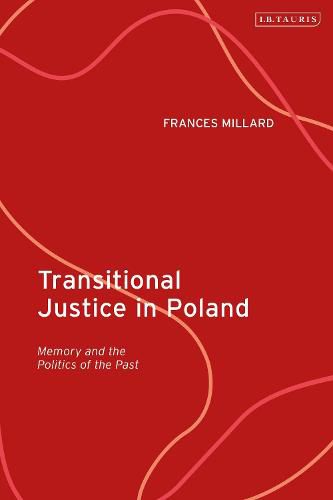Readings Newsletter
Become a Readings Member to make your shopping experience even easier.
Sign in or sign up for free!
You’re not far away from qualifying for FREE standard shipping within Australia
You’ve qualified for FREE standard shipping within Australia
The cart is loading…






In this study of the mechanisms of transitional justice in Poland, Frances Millard asks: How does society come to terms with its past? How should it punish the perpetrators of oppression and acknowledge its victims? In the former communist countries of Central and Eastern Europe the task of answering these questions came down to the need to eliminate the communist parties’ hold over the state, the economy and society in order to move towards democracy. Millard argues that the key step in achieving this was uncovering the truth about the previous regime’s past, prosecuting the perpetrators of past crimes and providing compensation and restitution for its victims.
Through the specific case of Poland, Millard provides a comprehensive assessment of the mechanisms and institutions used to achieve this, such as lustration, law enforcement through a Constitutional Tribunal and institutions dedicated to dealing with the past such as the Institute of National Remembrance. Crucially, these processes have assumed new significance in recent years after the Law and Justice Party came to power in 2015, using transitional justice as a tool of political control which has enabled the restructuring of Polish democracy.
$9.00 standard shipping within Australia
FREE standard shipping within Australia for orders over $100.00
Express & International shipping calculated at checkout
In this study of the mechanisms of transitional justice in Poland, Frances Millard asks: How does society come to terms with its past? How should it punish the perpetrators of oppression and acknowledge its victims? In the former communist countries of Central and Eastern Europe the task of answering these questions came down to the need to eliminate the communist parties’ hold over the state, the economy and society in order to move towards democracy. Millard argues that the key step in achieving this was uncovering the truth about the previous regime’s past, prosecuting the perpetrators of past crimes and providing compensation and restitution for its victims.
Through the specific case of Poland, Millard provides a comprehensive assessment of the mechanisms and institutions used to achieve this, such as lustration, law enforcement through a Constitutional Tribunal and institutions dedicated to dealing with the past such as the Institute of National Remembrance. Crucially, these processes have assumed new significance in recent years after the Law and Justice Party came to power in 2015, using transitional justice as a tool of political control which has enabled the restructuring of Polish democracy.